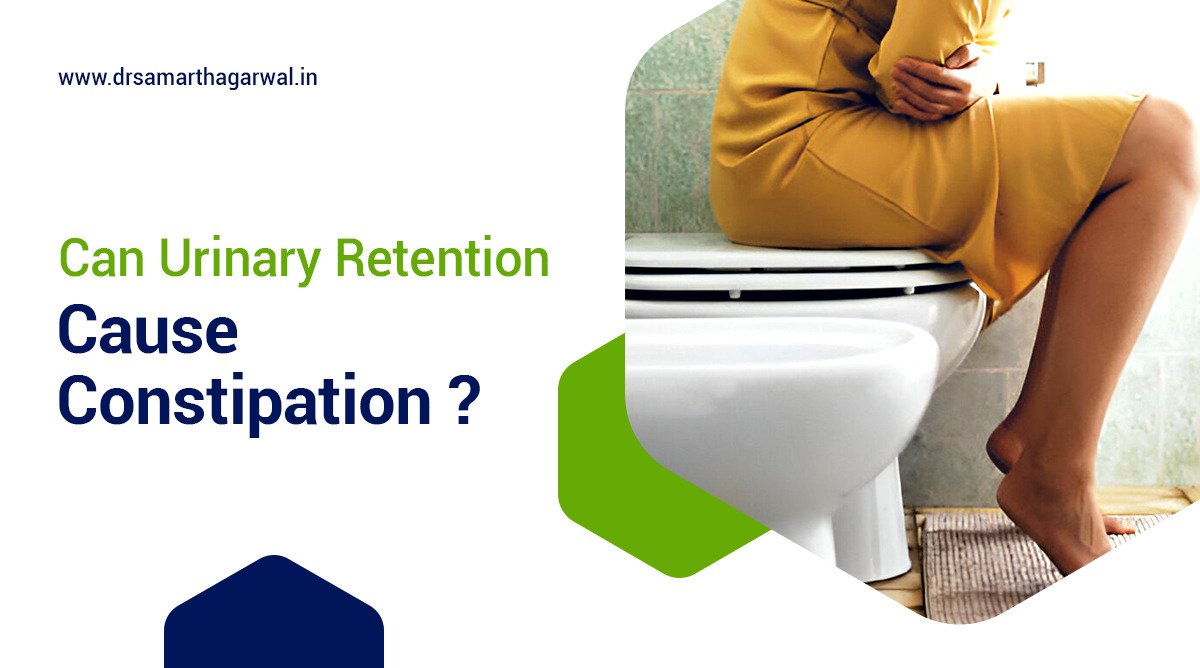Urinary retention can indeed cause constipation. The relationship between urinary retention and constipation stems from their anatomical proximity and shared neurological pathways. Paragraph: Urinary retention, characterized by the inability to fully empty the bladder, can lead to constipation through several mechanisms. The distended bladder exerts pressure on the rectum, potentially impeding the passage of stool. Additionally, the shared innervation of the urinary and gastrointestinal systems means that dysfunction in one area can affect the other. Chronic urinary retention may also cause behavioral changes, such as reduced fluid intake to avoid urinary symptoms, which can contribute to constipation.
According to Chiba, T., Kikuchi, S., Omori, S., & Seino, K. (2022). Chronic constipation and acute urinary retention, The anatomical proximity of the bladder and rectum, shared nerve roots, and chronic rectal dilation can contribute to urinary retention. Effective treatment of constipation may help prevent urinary retention.
Are constipation and urinary retention related?
Constipation and urinary retention are closely related conditions. Their connection stems from anatomical proximity, shared neurological pathways, and mutual influence on pelvic floor muscles.
- Shared pelvic floor muscles affect both urinary and bowel function
- Neurological disorders can impact both systems simultaneously
- Medications treating one condition may exacerbate the other
- Behavioral changes due to one problem can influence the other
Chronic conditions often coexist, complicating diagnosis and treatment
Can urinary retention cause bowel obstruction?
Urinary retention can potentially lead to bowel obstruction in severe cases. The mechanism involves physical pressure and functional interference with normal bowel movements.
A severely distended bladder due to urinary retention can exert significant pressure on the surrounding organs, including the rectum and lower intestine. This pressure can physically impede the passage of stool, potentially leading to a functional bowel obstruction. Additionally, the shared neurological pathways between the urinary and gastrointestinal systems mean that dysfunction in bladder control can disrupt normal bowel motility. In extreme cases, this combination of physical pressure and neurological disruption can result in a bowel obstruction, requiring immediate medical attention.
Can holding urine cause constipation?
Holding urine can contribute to constipation. The act of voluntarily retaining urine affects both the urinary and digestive systems through interconnected mechanisms.
- Pelvic floor muscle tension from holding urine can impede bowel movements
- Reduced fluid intake to avoid urination can lead to harder stools
- Neurological signals for urinary retention may interfere with bowel function
- Behavioral changes associated with frequent urine holding can disrupt normal defecation patterns
Chronic urine retention can alter pelvic organ positioning, affecting bowel function
Can your bladder block your bowels?
A distended bladder can indeed block the bowels. This obstruction occurs due to the anatomical relationship between the bladder and the intestinal tract. Paragraph: The bladder, when overly full or distended due to urinary retention, can physically impinge upon the rectum and lower intestine. This physical pressure can narrow the passage through which stool moves, effectively creating a partial blockage of the bowels. In severe cases of urinary retention, the enlarged bladder can shift the position of surrounding organs, further complicating bowel movements. This mechanical obstruction, combined with potential neurological disruptions in the shared pelvic innervation, can significantly impair normal bowel function and lead to constipation or, in extreme cases, bowel obstruction.
Can a urinary blockage cause constipation?
Yes, a urinary blockage can indeed lead to constipation. The obstruction in the urinary system can disrupt normal bowel function through various physical and neurological mechanisms. The relationship between urinary obstruction and constipation is multifaceted, affecting both the digestive and urinary systems. Understanding these mechanisms can help in managing symptoms effectively.
| Mechanism | Effect on Constipation |
| Physical Pressure | A distended bladder exerts pressure on the rectum, leading to reduced space for stool passage, which can impede bowel movements. |
| Neurological Disruption | The urinary and gastrointestinal systems share nerve pathways; disruption in one can affect the other, leading to altered bowel function. |
| Behavioral Changes | Individuals may reduce fluid intake due to discomfort, leading to dehydration and harder stools, which complicate bowel movements. |
| Pelvic Floor Dysfunction | Increased tension in pelvic floor muscles due to urinary blockage can impair both urination and defecation, making it difficult to pass stool. |
| Medication Side Effects | Medications prescribed for managing urinary issues, such as anticholinergics, can have constipation as a side effect, further exacerbating the problem. |

Contact Dr. Samarth Agarwal if you have any questions or concerns about your Urinary health!




